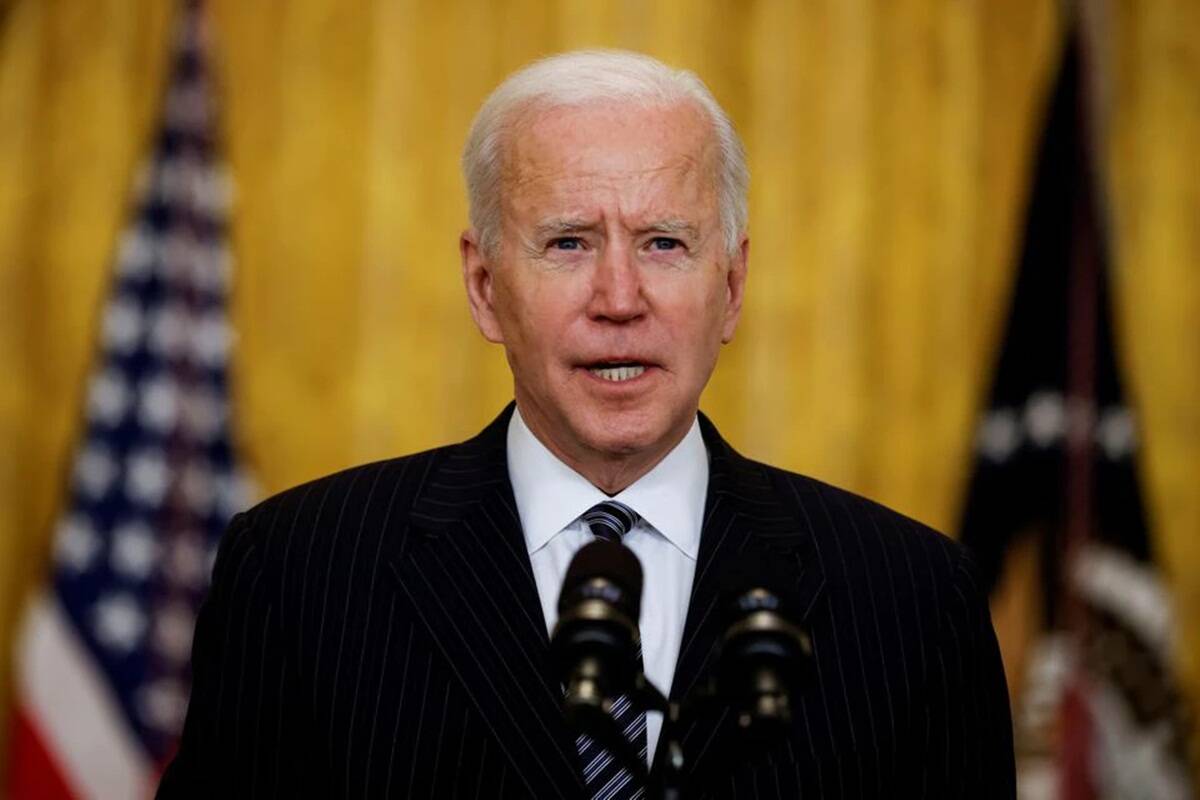Iran rejects Macron’s accusation of involvement in Ukraine conflict
Iran has rejected French President Emmanuel Macron's remarks that Russia has used Iranian military equipment against Ukraine.
President Biden’s plan envisages a ban on US investment in Russia beyond the energy sector. Furthermore, G7 will block Russia’s access to funds from the International Monetary Fund and the World Bank. “But these are not the last steps we are taking,” he warned. The economic blight is bound to hit Russia hard.

US president Joe Biden (Photo: Twitter)
President Biden intensifed the pressure on Russia with Friday’s decision to tighten the screw further still. He has let it be known that the G7 industrialised nations will revoke Russia’s status of “most favoured nation”. This will be in parallel to the US ban on Russian seafood, alcohol and diamonds, indeed the latest steps announced by the US President to punish Moscow over its invasion of Ukraine.
Both decisions are intended to deliver what he called “another crushing blow” to Russia as it continues its aggression on Ukraine. Vladimir Putin, he said, is an aggressor and he must “pay a price”. As the conflict escalates with the shelling of a hospital in Maruipol, the United States has signaled that it will add more names to a list of Russian oligarchs, who are sanctioned, and ban the export of luxury goods to Russia.
Advertisement
President Biden’s plan envisages a ban on US investment in Russia beyond the energy sector. Furthermore, G7 will block Russia’s access to funds from the International Monetary Fund and the World Bank. “But these are not the last steps we are taking,” he warned. The economic blight is bound to hit Russia hard.
Advertisement
Clearly, Washington, London and other allies have initiated coordinated moves, and these are in addition to unprecedented sanctions, export controls and banking restrictions. The measures are aimed at exerting pressure on Mr Putin to end the largest war in Europe since World War II. The Russian economy is already stuttering, and this reinforces the IMF’s prediction that it will plunge into a “deep recession” this year. “Russia cannot grossly violate international law and hope to benefit from being part of the international economic order,” is the caveat from the White House.
Consequent to the loss of the “most favoured nation” status, the United States and its allies will be free to impose tariffs on a wide range of Russian goods, thus deepening the country’s economic crisis. The ban on US luxury exports to Russia and Belarus takes effect immediately, as it did on Friday. After Russia annexed Crimea in 2014, China has emerged as its biggest export destination. Not wholly unrelated to the overwhelming global crisis, is Friday’s approval, advanced by Mr Putin, to induct thousands of fighters from West Asia to fight against Ukraine. There are 16,000 volunteers in West Asia who are prepared to fight with Russian-backed forces in the breakaway Donbass region.
“If you see that there are these people who, of their own accord, want to fight, not for money but to help the people of Donbass, then we need to give them what they want and help them to get to the conflict zone.” The Kremlin has proposed that western made Javelin and Stinger missiles, that were captured by the Russian army in Ukraine, should be handed over to the Donbass forces.
Advertisement